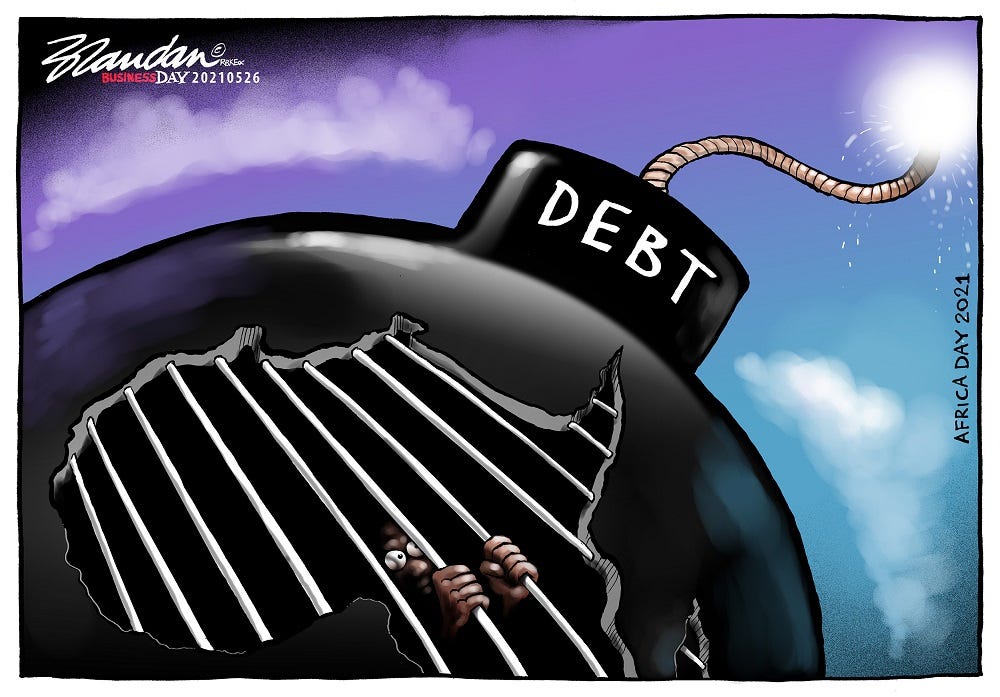Malawi Grapples with Unsustainable Debt and Strategies for Economic Recovery
Lilongwe, Malawi-A recent virtual debt problem conference showed that Malawi faces a pressing issue of unsustainable debt, raising concerns about the country's fiscal stability and economic future, writes Winston Mwale.
On July 12, 2023, stakeholders in Malawi gathered virtually for an online debt problem conference to address the pressing issue of the country's unsustainable debt and explore viable solutions for economic recovery.
The event featured thought-provoking presentations from experts, shedding light on the challenges and implementation of Malawi's debt management strategies.
Bertha Lipipa-Phiri, the Executive Director of the Malawi Economic Justice Network (MEJN), highlighted the significance of Malawi's Medium Term Debt Management Strategy (MTDS) 2022–2026, developed by the Ministry of Finance and Economic Affairs.
The strategy aims to meet financing needs, ensure timely repayment of obligations, minimise costs, and boost the domestic debt market.
However, the implementation faces hurdles, particularly due to the shift from borrowing from official multilateral lenders to private and bilateral lenders.
"With a debt-to-GDP ratio reaching 65% in March 2022, Malawi's debt is deemed unsustainable, raising concerns about the country's fiscal capacity and potential economic growth," Lipipa-Phiri said.
One of the challenges lies in the large percentage of government debt maturing in a single year, exposing the country to interest rate risk.
The conference also addressed the trade deficit that Malawi faces, which leads to economic imbalances.
Lipipa-Phiri stressed the need for export diversification and finding new markets while supporting local industries and industrializing the mining sector to boost domestic revenue and foreign exchange.
The presentation called for increased citizens' involvement in debt contracting processes to ensure transparency and accountability.
Additionally, collective action was advocated to curb Illicit Financial Flows (IFFs) contributing to the country's debt problem.
Another presentation by Aubrey Mchulu, Editor of The Nation, focused on the role of Civil Society Organizations (CSOs) in raising citizens' awareness about the debt problem.
Mchulu highlighted the importance of media engagement in amplifying awareness and urged CSOs to strengthen their presence in the media to have a more significant impact.
In a separate discussion, climate activist Thoko Chikondi and Oxfam representative Didier Jacobs discussed Africa's indebtedness and the World Bank and IMF's role in shaping the financial landscape.
They emphasized the critical role of IMF bailouts and debt relief in mitigating the human cost of default, with a call for scrutiny of debt management strategies to align with sustainable environmental goals.
As Malawi grapples with its debt challenges, stakeholders are looking to implement viable strategies for economic recovery and sustainable growth.
With clear and robust debt management institutions and a collective commitment to fiscal responsibility, Malawi can work towards a brighter economic future while addressing climate concerns and ensuring citizens' awareness and engagement in the process.
Malawi's economy is facing significant challenges due to the rapidly growing government fiscal deficit and mounting public debt, raising concerns about its ability to avoid a fiscal waterboarding scenario.
Meanwhile, in an insightful analysis titled "On the Economics of Public Debt in SSA: Can Africa Avoid a Fiscal Waterboarding?", Betchani H. M. Tchereni, PhD, the Executive Dean & Associate Professor (Economics) at the School of Business and Economic Sciences, shed light on the precarious economic situation.
He said the limited tax base and surging demand for public services in Malawi have led to an alarming increase in the government's fiscal deficit.
Over the past eight years, government debt as a percentage of GDP has soared from 29.27% to 55.15%, resulting in an alarming 88% surge in the Government Deficit, as reported by the World Bank in 2020.
This fiscal predicament poses a serious threat to Malawi's already fragile economy, potentially crowding out private investment.
To address the crisis, Tchereni stressed the urgent need for better domestic resource mobilization by the public sector, emphasizing the importance of reducing public debt and meeting obligations in providing essential public goods.
Currently, the country faces two crucial choices: either cut down on expenditure or increase revenue.
While cutting down expenditures might adversely affect the welfare of the population, as Malawi is a developmental state, it continues to build its economy, focusing on critical sectors like healthcare, education, infrastructure, and agriculture, which heavily rely on subsidies.
One of the primary drivers of fiscal turbulence is the insatiable appetite for expenditures.
Tchereni said high government borrowing for consumptive purposes, such as luxury vehicles for officials, further exacerbates the economic challenges, with over 80% of the budget and 60% of borrowed funds being spent on salaries, emoluments, and fuels.
To alleviate the fiscal strain he suggested that the solutions lie in making sacrifices in consumption, investments, and taxes.
While the International Monetary Fund (IMF) is an option for countries facing distress, the author cautions against relying solely on external assistance and emphasizes the need for internal measures to spur economic growth and industrialization.
Tchereni highlighted the importance of balancing expenditure and revenue to support economic development, with a renewed focus on import substitution and the development of self-reliant industries.
He argued that embracing supply-side economics alongside Keynesian policies could pave the way for a more stable and prosperous economic future for Malawi.
As the country grapples with its economic challenges, the importance of making the right choices in fiscal and economic policies cannot be underestimated.
The authorities must navigate this turbulence wisely, seeking sustainable solutions that promote growth and prosperity for all citizens.




